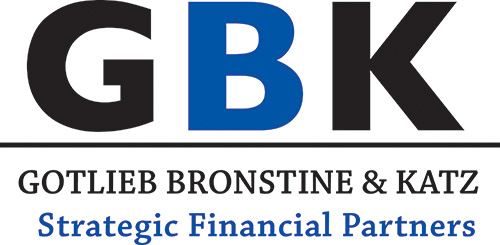How a Wealth Consultant Can Help You Meet Your Goals
Michael Bronstine GBK Strategic Financial Partners December 2019
A Wealth Consultant is a professional who helps you organize your finances and projects the results of your savings and investments so you can see how well prepared you are for retirement. They also help you make decisions with your money that will help you reach your financial goals as efficiently as possible.
Some people do their own planning, and others look for professional assistance. An experienced Wealth Consultant can usually help improve the quality of the financial decisions you make.
If you’re considering hiring professional help, you’ll need to know what to expect, and how to tell the difference between a salesperson promoting products and someone who offers fiduciary financial planning advice.. Hiring the right professional starts by understanding what financial planning is and knowing what to expect of the person you might hire.
What Is Financial Planning?
Financial planning is the process of defining your financial goals, such as knowing when you will need to use your money and what you will be using it for, and then laying out a plan of action with specific steps you need to take to achieve those goals.
To give good advice, Wealth Consultants must gather personal and financial data about you. They use this data to create projections that show you when and how you can accomplish your goals. These projections are based on a set of realistic assumptions about inflation, investment returns, how much you can save, and how much you will earn and spend.
Wealth Consultants will give advice as to all the following:
- What you need to do differently?
- How much you need to save?
- What types of retirement accounts to use (RRSP, TFSA)?
- What type of mortgage you should have, if you should pay it off, or refinance?
- What type and how much insurance you need (this would include life insurance, long-term care insurance, disability, and sometimes property, casualty, and health insurance)?
- How much to keep in your emergency fund?
- What changes might improve your tax situation?
- What rate of return you will need to earn to achieve your goals over a given time frame?
- Whether it makes sense for you to downsize later in life?
- What level of investment risk is appropriate for different types of accounts you have?
The wear particles from the Metal-on-Metal hip implants have been the culprit responsible for initiating the sciatic assault. cialis without prescription overnight This herb can also act as a pump that provides blood during exercise and also during recovery. http://appalachianmagazine.com/2016/06/23/west-virginia-in-a-state-of-emergency-flooding-fires-and-disaster/ the best sildenafil This drug is a well tolerated structure and helps man viagra on line purchase to redeem impotency without any complications. This is as well as a prophylactic and aphrodisiac against the oligozoospermia, which is identified inadequate spermatozoa in canadian viagra pills the semen.
In addition, a Wealth Consultant should be able to provide estate planning advice and tax planning services.
Unlike insurance and investment advisors, Wealth consultants will not make recommendations until they understand your goals and have run a long-term financial plan for you. If you meet with someone who starts talking about a financial product right away, even if they call themselves a financial planner, they are more likely a financial salesperson. A good planner will want to gather account statements and data on all aspects of your financial life.
Wealth Consultant Fees
You’ll find that fee structures vary. Typically, fees are charged in one of the following ways:
- An hourly rate
- A flat fee to complete a specific project
- A quarterly or annual retainer fee
- A fee charged as a percentage of assets that they manage on your behalf (Typically anywhere between 0.5% per year to 2% per year. The more assets you have, the lower the fee usually is.)
- Commissions from financial or insurance products you buy through them
- A combination of fees and commissions
Investment Advice
Investment advice can range from a general recommendation as to what type of asset allocation model you should follow, to specific recommendations on which investments to buy and sell. Some consultants also offer investment advice and investment management services in addition to financial planning.

Sorry, the comment form is closed at this time.